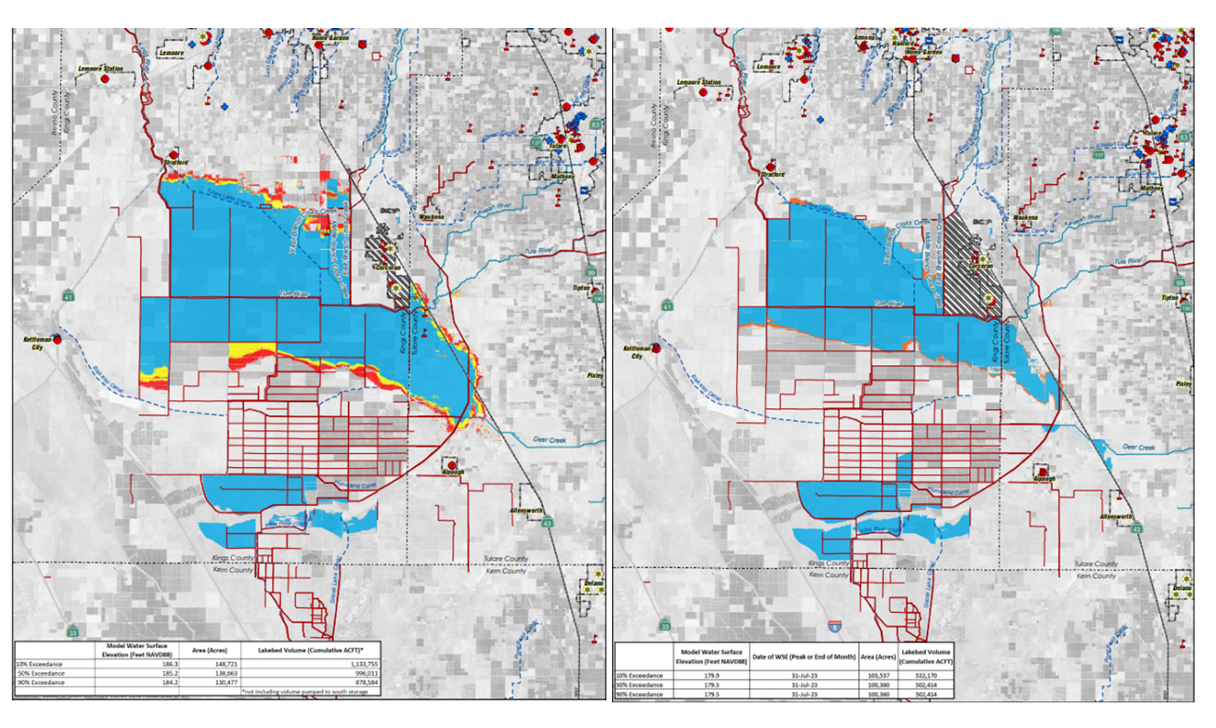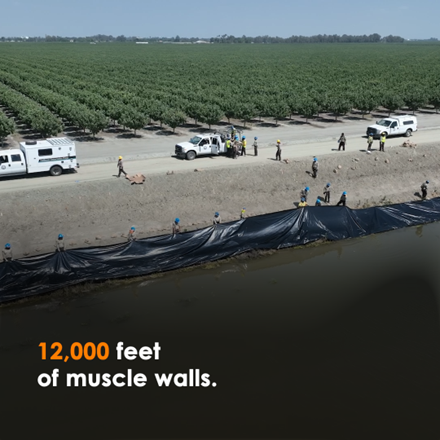Governor Gavin Newsom | Governor Gavin Newsom Official photo
Governor Gavin Newsom | Governor Gavin Newsom Official photo
SACRAMENTO – State officials have released new data and inundation maps showing that Tulare Lake has begun to recede, marking a significant turning point in the all-of-government effort to protect communities from flooding.
By taking early and aggressive action – including a state of emergency, executive orders, pre-emptive water management strategies, and more – to divert flows upstream from Tulare Lake, at least 66,692 acre-feet of water was diverted to protect communities and put that water to use by recharging groundwater, replenishing storage, and more.
66,692 FLOODED FOOTBALL FIELDS: At a foot deep, that’s how much more water would have ended up in the Tulare Lake if state, local, and federal officials hadn’t acted. The 66,692 acre-feet of water equates to 21.7 billion gallons. Here’s a breakdown of actions taken to divert water away from the Tulare Lake:
- Governor Newsom’s floodwaters executive order resulted in 21,465 acre-feet of water diverted away from Tulare Lake;
- Temporary pumps activated by the state resulted in 20,517 acre-feet of water diverted away from Tulare Lake;
- The Kern River Intertie diverted 24,710 acre-feet of water away from Tulare Lake.

May 1 vs. June 28 forecast of July 31 conditions – click here for more information
HOW WE GOT HERE: Weather whiplash resulted in California going from the three driest years on record to historic rain and snowfall, causing flooding throughout the state. California, under Governor Newsom’s leadership, took action to protect lives and livelihoods:
- Activated the State Flood Operations Center, working around the clock coordinating the state’s response and conducting missions to protect against flooding from this year’s record rainfall;
- Proclaimed a state of emergency in January mobilizing state government ahead of the winter storms, proclaimed a state of emergency in 53 counties to support response and recovery efforts, and activated the National Guard to support disaster response and relief;
- At the Governor’s request, President Biden issued a Presidential Emergency Declaration and a Presidential Major Disaster Declaration to bolster state and local recovery efforts;
- Issued an executive order to expedite emergency flood preparation and response activities in the Tulare Lake Basin, such as floodwater diversion, debris removal, and levee repairs;
- Governor Newsom visited the Tulare Lake Basin to see flooding impacts firsthand, meet with community leaders, and emphasize the state’s commitment to supporting counties impacted by flooding;
- Announced state investment of $17.2 million to fortify the Corcoran Levee, protecting critical infrastructure, correctional and medical facilities, and more;
- Committed over $500 million in the 2023-24 state budget to support flood response and projects to protect communities from future floods.

Click here for footage from the Tulare Lake response
EMERGENCY RESPONSE: A whole-of-government approach was mobilized, with personnel and resources deployed to protect communities and support recovery, including:
- Over 1.88 million sandbags and roughly 23,000 supersacks distributed to help prevent flooding;
- 12,000 feet of Muscle Walls deployed;
- Over 59 million pounds of rock and sand used to shore up rivers and levees;
- Over 60 shelters opened for residents displaced by flooding and snowfall;
- Over 850 comfort kits distributed to impacted families;
- Over 3.5 million miles of California roads plowed or maintained;
- 590 million cubic yards of snow removed;
- Over 2 million phone calls made to Californians in the impacted region to provide flood awareness and preparedness information;
- Used on the ground messengers to sign up more than 46,000 households for local emergency alerts.
- The Administration continues to work with the individuals and businesses that have been impacted and remains committed to ongoing recovery efforts;
- The state announced a $95 million fund to support undocumented Californians who have been impacted by flooding but don’t have access to government programs;
- Due to years of drought, California had capacity in reservoirs and underground storage to store the excess water – if we have another wet year next year, we will not be in the same position. Work has already begun to prepare for future flooding;
Original source can be found here.






 Alerts Sign-up
Alerts Sign-up